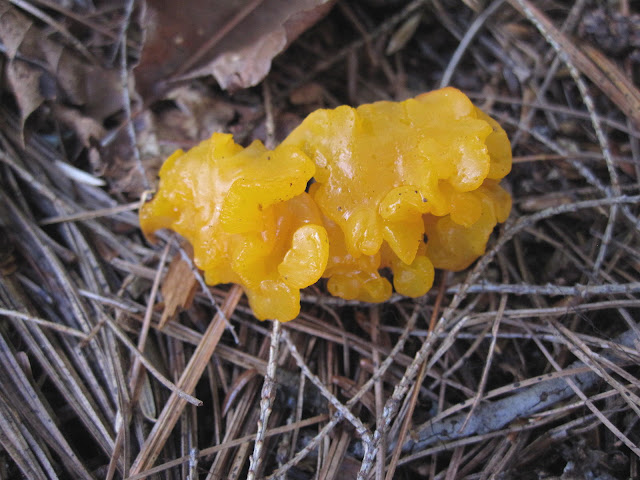Lake Wicwas is really starting to come alive now. All the trees save the oaks have leafed out and are turning darker green, and more and more of the other plants are joining them, including a flower I haven't noticed before - a tiny member of the lily family, the Sessile Bellwort.
 |
| Sessile Bellwort (Uvularia sessilifolia) |
|
|
|
|
Here a fern that was just a sprout last week is about to unfurl.
And a few other pretty flowers:
 |
| Star Flower |
 |
| Bluets |
The blueberries have set their blossoms, and the vestiges of this summer's fruit can be seen as minute green specks where the blossoms have been relinquished.
 |
| Blueberry |
Another fruit, the black cherry is in bloom; each blossom will form a single cherry, and tiny insects are helping with the pollination.
 |
| Black Cherry |
An advantage of the cool, wet weather this past week (in addtion to filling the lake back up) is that the flowers have a much longer season. Also, the black flies aren't too bad yet, but there are plenty of tics around.
I found this Orange Jelly Fungus on the ground, but it must have fallen off the tree where it grew. Jelly fungus are reportedly edible, but I didn't sample it!
 |
| Orange Jelly Fungus (Dacrymyces palmatus) |
I saw a deer enjoying the fresh, tender foliage of the spring plants, consuming lots of nutrients in the last month of her gestation period . Whitetail deer have a gestation period of 200 days, with mating taking place in late November. Both male and female mating clocks are triggered by the amount of light in the day, so they have a quite precise mating date that is not influenced by weather. Thus fawns are usually born in early June, though it can be delayed if there is insufficient food for the doe so the fetuses (there are most often two) need more time to gain sufficient weight. And if a doe doesn't conceive at her first mating, she will have a second heat in about 30 days, delaying birth until July.
 |
| July 2010 |
The geese don't wait so long - their young have already hatched out and the goslings are being introduced to the lake by their parents. Talk about having your ducks in a row!










No comments:
Post a Comment